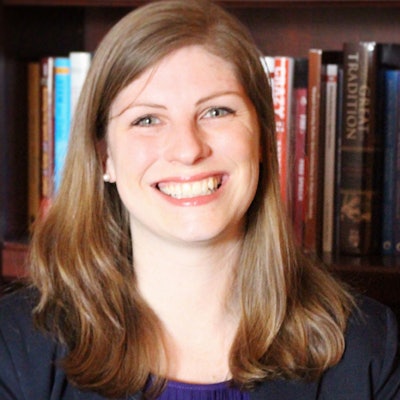The Biden administration’s recent moves towards relief for student borrowers—the debt forgiveness program currently awaiting a hearing at the Supreme Court and changes to income-driven repayment programs—have sparked controversy and criticism. One of the most persistent critiques has that colleges will respond by raising tuition since they know that students have been encouraged by the changes to borrow. This idea is the so-called Bennett hypothesis, named after former Secretary of Education William J. Bennett, who suggested it in a 1987 New York Times editorial entitled “Our Greedy Colleges.”
It's a logical idea. After all, since the 1991-92 academic year, federal student aid has increased 295%, during which time institutions of higher education roughly doubled their inflation-adjusted tuition and fees, according to data from the College Board. And it’s easy to imagine that if students have easy access to government money, colleges would want to use it to improve their programs or pad their bottom lines.
 Dr. Jenna A. Robinson, president of the James G. Martin Center for Academic Renewal
Dr. Jenna A. Robinson, president of the James G. Martin Center for Academic Renewal
Robinson believes that the effects of the Biden administration’s moves could be significant.
“Universities could really raise tuition quite a bit, knowing that the cost is not going to fall on the students they’re trying to attract,” she said. “It probably would have as large of an effect as the fact that subsidized federal student loans exist in the first place.”
Robinson is far from alone in her concern. A group of 23 Republican governors invoked the Bennett hypothesis in a letter to President Biden opposing loan forgiveness, and Dr. Lawrence Summers, the former secretary of the treasury and president of Harvard University, mentioned it in a in a tweet last year.
But research suggests that outside of for-profit institutions, evidence for the Bennett Hypothesis is scant.
“It’s very difficult to find a Bennett hypothesis story in the public and not-for-profit sectors,” said Dr. Michael Kofoed, an associate professor of economics at the United States Military Academy in West Point. “I would say [it’s] muted at best. There could be some small places where it could happen, but, overall, the literature shows it’s just not as big as people make it out to be.”
The reason, according to Kofoed, is that colleges may not be as greedy as William J. Bennett had thought.
“Colleges and universities are not profit-maximizing firms,” he said. “They have other objective functions, and so they don’t behave like a for-profit firm would.”
Institutions of higher education are moving toward no-loan programs, Kofoed argued, in which higher-income students paying full sticker prices subsidize lower or middle-income students. Increasing the sticker price might make this system more challenging.
“I would be skeptical of thinking that they would instantly throw out that model of student cross-subsidization and decide to just raise tuition to capture the student loans and place a higher debt on the students that they are currently committed to reducing,” he said.
Research has found that even when students are able to borrow large amounts, it doesn’t lead to increases in tuition.
Dr. Robert Kelchen, professor and head of the department of Educational Leadership and Policy Studies at the University of Tennessee, Knoxville, did a study of graduate students, who have been able to borrow up to the full cost of attendance since the mid-2000s.
“I was going into my research expecting to find that [the Bennett hypothesis] is true,” he said. “And I was surprised. If it’s happening, it should be happening in law schools and business schools. [But,] I did not find a big increase in tuition.”
Kelchen thought that perhaps schools didn’t want to be perceived as greedy, or that no school wanted to move first. Another factor was that students who can borrow more often still prefer to borrow as little possible.
There are several alternative explanations for why college costs have risen so much, according to Kelchen and Kofoed. Over the past several decades, demand has increased faster than the number of available seats. In the case of public universities, state funding declined in the Great Recession and hasn’t recovered. Schools are also dependent on large workforces that can’t be automated and have only gotten more expensive. And students have come to need and expect more non-academic services over the past few decades, particularly for mental health.
Kelchen is doubtful that the Biden administration’s changes will have much of a Bennett effect. He points out that increases in tuition have slowed in recent years.
“A lot of colleges are concerned that if they raise prices, they won’t get students,” he said. “[With] affordability as a concern, I think we’ve gotten to a point where the majority of colleges out there will struggle to increase tuition in any meaningful way.”
But Kelchen thinks that, despite what studies have shown, the Bennett hypothesis will remain prominent.
“Most people are not reading the research,” he said. “And researchers aren’t great at communicating it.”
Jon Edelman can be reached at [email protected].





















